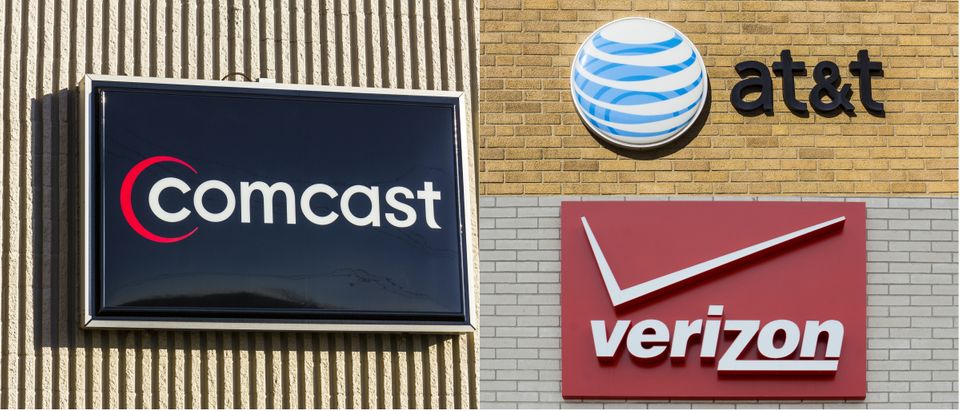Have you ever looked at your cable, internet or phone bill and wondered just how much telecom is making off of you every single month? These big telecom companies like AT&T, Comcast and Verizon are really making a killing – but the money they’re making from your monthly bill is actually just the beginning.
What you probably aren’t even considering beyond your monthly bill is just how much more telecom companies are making by selling your personal data to third party vendors. Incredible amounts of personal data is changing hands every day – data telecom companies collect, charge you for, then turn around to sell to someone else.
Telecoms’ use of personal data is much more intrusive than the data conversations we’ve been hearing about in the news lately. This information could include details about your physical location, where you’re going/where you’ve been, what shows you’re watching, and what you’re buying online. This leads to a very valuable commodity for numerous third parties willing to pay for this personal information about you, and telecom is more than willing to aggressively monetize your information for their own benefit.
In fact, AT&T and Verizon are selling alarming amounts of your personal data, like your phone’s actual location, your address, and this is usually being done without your express consent, and maybe even without your knowledge. Normally, we click some sort of acknowledgement that “I agree” to data sharing, even if the terms of agreement have been skimmed at best, or skipped over completely at worst. The vast majority of times, you have at least a head’s up that your data is being shared. But telecom companies are often times selling your information without consent, and without disclosing the personal information they’re selling from their customers.
No companies in the world have more information on consumers than telecoms and internet service providers. And as these companies grow and consolidate, so will the amount of information they have about consumers that can be cross checked, filed away, and later sold to the highest bidder.
Over the last few years, reports have shown telecom companies can make tens of billions of dollars selling personal data, and the potential growth in this area is astronomical if consumer privacy concerns are left unchecked. So why isn’t there more attention being paid to protecting consumer privacy and data when it comes to telecom? It’s crystal clear more needs to be done to protect consumer data and privacy when it comes to the actions of telecom based on their past and present behaviors.
But as anyone that’s ever tried to fight a phone or cable bill knows, telecom is not going to give in easily to changes that require more robust consumer protections, especially if this threatens their ability to make even one dollar more off of you. However, it is possible to demand more from these companies.
When consumers joined forces and voiced demand for changes from companies like Google and Facebook, their voices were heard and changes were made. Now, major digital advertising platforms like Google and Facebook have implemented stringent new policies aimed at protecting consumers and boosting ad transparency.
Internet companies have already taken drastic steps to update their privacy standards. It’s now time to pay attention to the real threats to privacy and consumer protections and demand similar action from telecom. Consumers can’t afford the price they’ll be asked to pay if telecom continues their current actions unchecked.
Sarah Pompei has over a decade of experience at the top levels of American politics and corporate America. She has worked as a director on the public policy team at Lyft and served as a director of corporate communications at Hewlett Packard Enterprise. She also has worked in the U.S. majority whip’s office and for numerous political campaigns.
The views and opinions expressed in this commentary are those of the author and do not reflect the official position of The Daily Caller.












